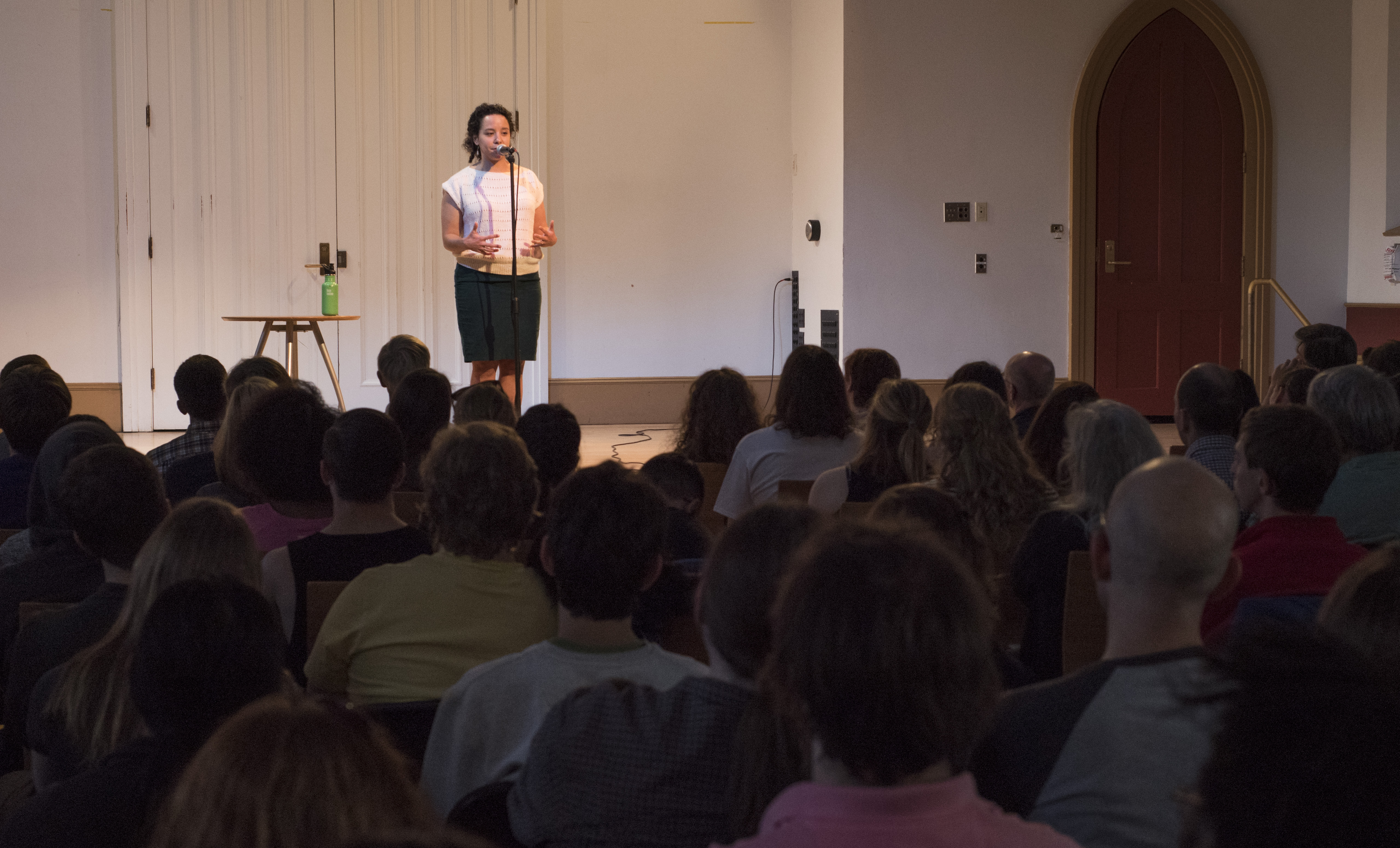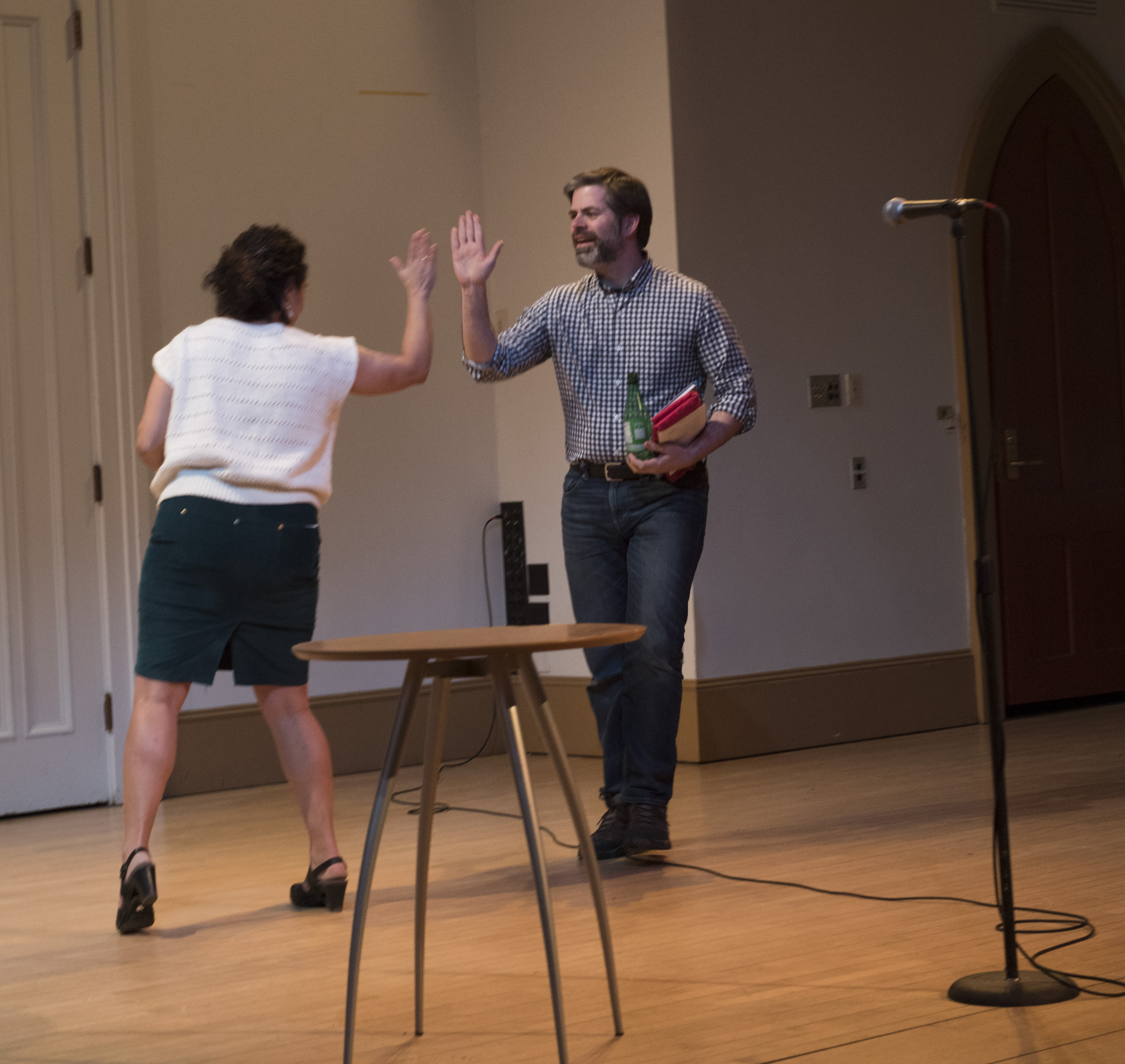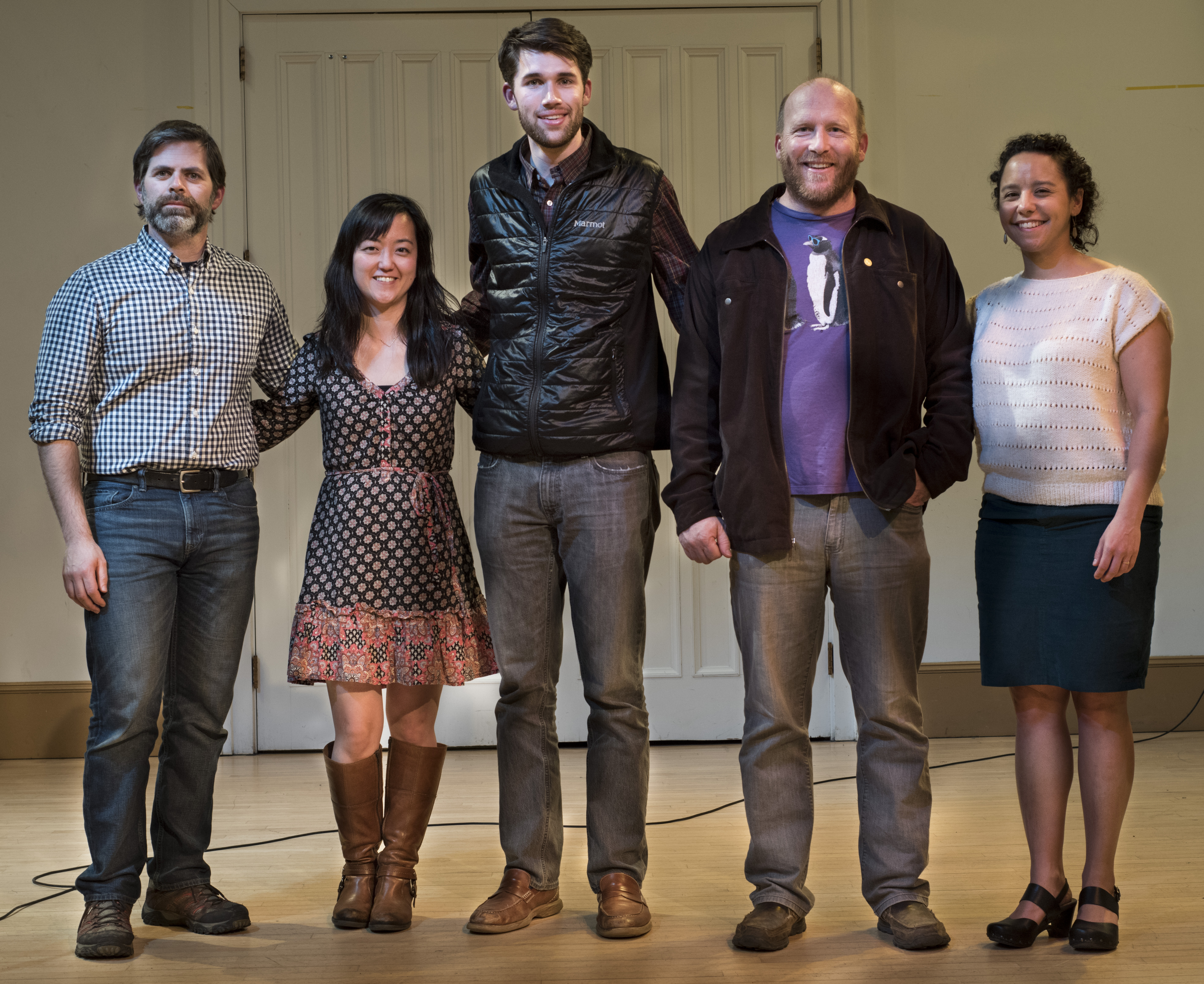24 May 2016
When science and storytelling collide
Posted by Shane Hanlon
By Phoebe A. Cohen

Storytelling to a packed house. Photo credit: Ezequiel Davila & The Story Collider
Standing on a stage in front of 200 people, I confess to my love for Dana Scully, read a poem I wrote when I was 20, and describe the awe I felt upon seeing lava for the first time. What on earth would prompt me, a paleontologist and college professor, to do such a thing? I’m performing at The Story Collider— a live storytelling event that features true, personal stories about science, and I’m loving every minute of it.
I first found out about The Story Collider in 2012, when I was a post doc at MIT. I was invited by the co-founders, Brian and Ben, to tell a story at an event they hosted as part of the Cambridge Science Festival. Brian and I hit it off and when I got a job at Williams, his alma mater, we began plotting a show on campus, which took place on April 15th in front of an audience of faculty, students, and community members.

High-five for a job well done! Photo credit: Ezequiel Davila & The Story Collider
The first story I told, in 2012, was about getting chased by a bear in the Yukon while doing field work as a graduate student, but was really about accepting my fear of remote field work and the interpersonal challenges that can arise in such situations. The second story which I told this April was about going to Hawai’i as an undergraduate, but was really about how I learned to reconcile the “arty” and “sciencey” sides of myself and how I began to visualize my path as a woman in science.
Writing and performing both pieces was a fascinating process because it helped me see myself, and my science, in a different light. We spent so much time trying to remove ourselves from our work, to remain objective, that it is liberating to be asked to do the exact opposite. Brian’s notes to me on my first draft were peppered with “…but how did you feel?”. The process is inherently introspective, and both times I have done it it has revealed to me new truths, new connections, and new insights about my life. It’s like therapy, but cheaper.

The lineup for the evening. Photo credit: Ezequiel Davila & The Story Collider
It’s also really fun. Storytelling is a way to share the fact that while science may be based on observations of the natural world, it is done by humans who feel, who make mistakes, who get depressed, who fall in love. We are science. It’s refreshing to embrace that, and gratifying to hear how the stories we tell about our own lives resonate with others. After the show, students I chatted with told me they felt inspired and excited by our stories. Others told me how they felt reassured — by publicly airing our foibles and doubts, we humanized ourselves, and thus also our science. This is the greater power of events like The Story Collider. By creating emotional connections, storytelling lets us all leap, albeit briefly, over the walls that so often cloister academic science.
-Phoebe A. Cohen is an Assistant Professor of Geosciences at Williams College. When not teaching and studying tiny fossils, Phoebe makes maple syrup and watches the X-Files with her pit bull. You can hear Phoebe’s story, as well as all the stories from the Williams show, on her website.










 The Plainspoken Scientist is the science communication blog of AGU’s Sharing Science program. With this blog, we wish to showcase creative and effective science communication via multiple mediums and modes.
The Plainspoken Scientist is the science communication blog of AGU’s Sharing Science program. With this blog, we wish to showcase creative and effective science communication via multiple mediums and modes.